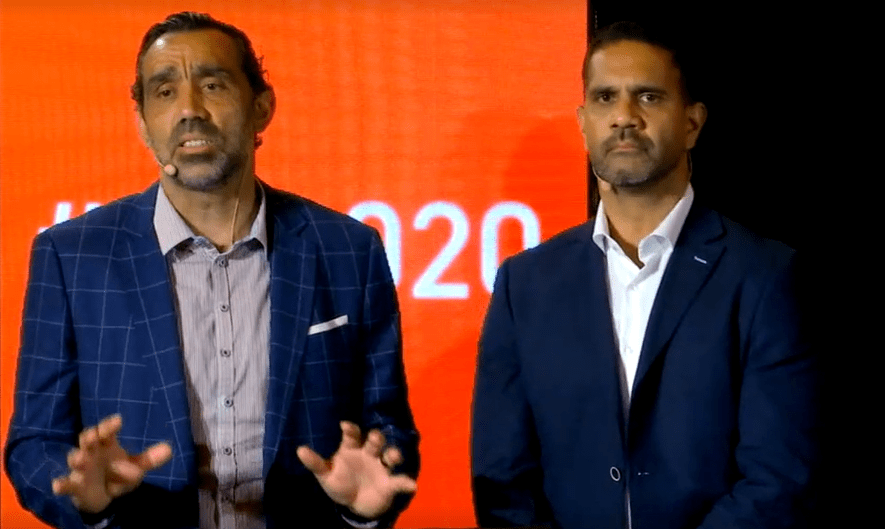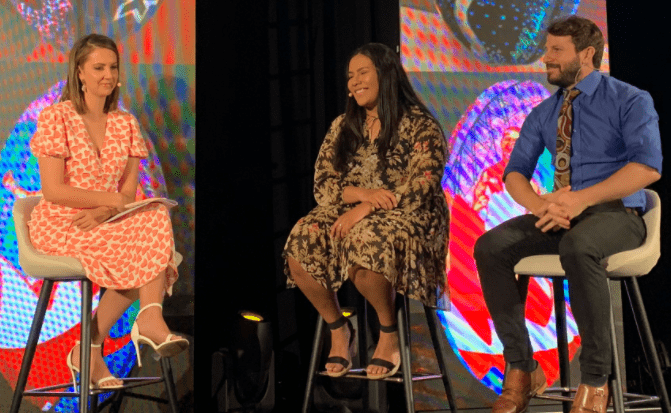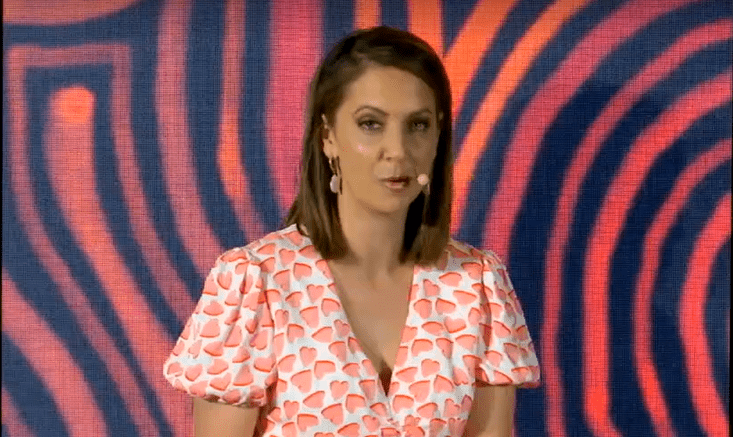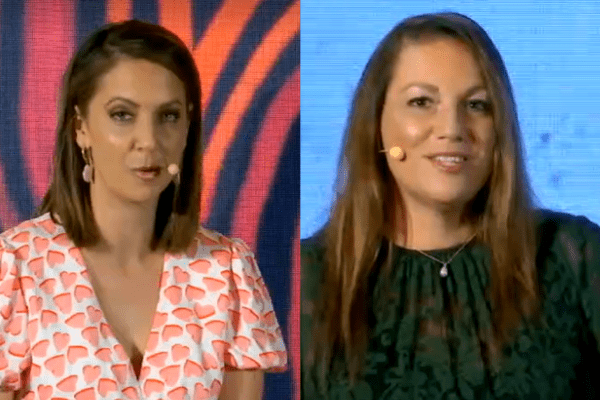When Sonja Stewart took to the stage at the GO Foundation’s The Big Catch Up virtual event on Friday afternoon, she explained that she’d been chatting to her grandmother on the phone that morning.
The conversation had reminded her of a moment about three months ago, when Sonja had been appointed the first Indigenous Chair of the GO Foundation, and had shared the exciting news with her grandmother.
“It gives me goosepimples when I think about this because she screamed,” Sonja said.
“She screamed the scream of joy and she screamed the scream of commitment and determination and she screamed for those who couldn’t be with us in body but were there in spirit.
“And it was just the most amazing sound I’d ever heard in my life.”
“She said to me, ‘I knew you could do this’ and she said to me, ‘hard work always pays off’.”

The virtual event on Friday marked the first time Sonja Stewart has spoken on behalf of the GO Foundation as its new Chair.
“Being the first Indigenous Chair of the foundation, I want to remind all the students here, and I know that you probably don’t need a big reminder on this, that we stand on the shoulders of those that go before us,” she said.
“You heard that didgeridoo at the beginning with Blak Douglas, and you could have heard the ancestors and the spirits, and the ancient spirits of 60,000 years. And that’s what it’s all about,” she said.
Sonja Stewart succeeds Sam Mostyn in the role of Chair at the GO Foundation, which was founded by Adam Goodes and Michael O’Loughlin. The organisation provides education scholarships to young Indigenous people across the country.
To date, the foundation has awarded more than 500 scholarships to young people, and it has 26 alumni. Sixty per cent of the scholarships are awarded to young women, and Goodes and O’Loughlin’s vision is to create role models, by focusing their scholarships on the eldest children in families.

Sonja Stewart’s appointment to Chair is special for Goodes and O’Loughlin. As they explained at the event, they’ve always aspired to fill their leadership and management positions with Indigenous people, and Sonja is a symbol of that aspiration.
Hosted by Adam Spencer and GO scholar Madi Howarth, the event marked an opportunity for the foundation to update its supporters on how they’ve managed to overcome the curveballs the pandemic has thrown at them this year.

Shirley Chowdhary, the CEO of the of the foundation, addressed some of these hurdles, explaining that early on in March, they quickly realised “that our students and their families were at the coal face of the issues that the pandemic was creating”.
“They were losing jobs; they were being threatened with eviction…”
“We realised really quickly that we would have to change every aspect of how we delivered our programs, because face to face interaction wasn’t possible.”

“We scrambled to rise to the occasion. We’d been working on a digital platform to move a lot of our programs to a digital interface and we accelerated that work. We put in place an online application portal and hosted our interviews in an innovative way.”
The event also heard from journalist and media personality Brooke Boney, who held a panel session with two GO scholarship students, Tanisha Lafitani and Mitch Gibbs.

Tanisha, who will finish her university degree in five weeks, spoke about how being part of the GO foundation helped her not to give up on herself and the people around her.
“Up until having the relationship with GO, I wasn’t motivated to learn about my people and culture,” she said.
“After I came to GO, I could see the light at the end of the tunnel.”
Brooke Boney also spoke about her own experience of being one of the first Aboriginal people to ever hold a role on commercial morning television.
She said she likes to use her voice to put across a different perspective, and broaden the conversation, but she doesn’t assume to ever represent all Aboriginal people. She explained how this really hit home when the Black Lives Matter movement exploded this year.

“I felt so proud that people were waking up and hearing an Aboriginal perspective on the issues that they wouldn’t have before. I do feel very proud of those moments,” she said.
“But it’s difficult when you’re an Aboriginal person, because you don’t want to represent every Aboriginal person’s perspective. You just want to put across a different perspective to one that’s already out there.”
So wonderful to be joining our @GOFoundationAU Big Catch Up in a virtual way today-it’s just like we’re all in the room with #AdamGoodes & @MickOLoughlin – with such warm words of support from Patron @LindaBurneyMP & inspiring vision of Adam & Michael, much to be proud of #GO2020 pic.twitter.com/Izv5Rrpjbp
— sam mostyn (@sammostyn) October 16, 2020


